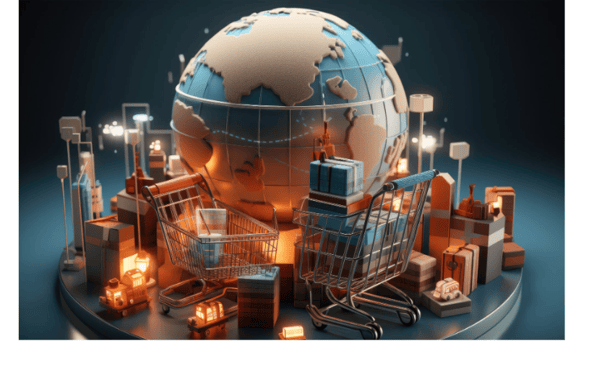Old-fashioned logistics can't meet new customer expectations -- it's time to up your warehousing and delivery game.
With the advent of e-commerce, mobile commerce, and omnichannel experiences, we find ourselves at an inflection point where traditional retail logistics must adapt or be left behind. A recent article in Forbes says consumers will buy nearly $11 trillion in goods and services online this year alone.
The emergence of innovative shopping technologies is leading us down a path of convenience, speed, and personalization. Let’s break down some key trends and how they’re transforming retail logistics.
1 - E-Commerce Dominance:
The rise of online marketplaces like Amazon, Alibaba, and Walmart has led to a seismic shift in purchasing patterns. Consumers now expect seamless delivery options, competitive pricing, and unparalleled product variety from the comfort of their homes.
Since the pandemic, B2B sellers are also selling more goods through e-commerce channels than in-person transactions. 65% of B2B companies across industries regularly complete sales transactions online, according to consulting firm McKinsey & Co.
This trend requires logistics providers to optimize supply chain management, improve last-mile delivery solutions, and invest in advanced warehouse automation systems.
2 - Mobile Commerce:
Smartphones have become ubiquitous tools for browsing products, comparing prices, and making purchases. Their convenience and versatility have revolutionized the way we shop, transforming the retail experience into a dynamic and accessible adventure.
As consumers increasingly rely on their devices to make buying decisions, it becomes crucial for logistics companies to develop efficient mobile applications capable of tracking orders, providing real-time updates, and facilitating returns.
3 - Omnichannel Experiences:
Customers no longer confine themselves to one channel when interacting with brands; they move fluidly between physical stores, websites, social media platforms, and more.
To cater to these diverse preferences, logistics providers need to integrate data analytics, inventory management, and customer service across all touchpoints.
4 - Sustainable Practices:
Concerns over climate change and environmental degradation are driving demand for sustainable packaging materials, carbon-neutral shipping methods, and reduced waste throughout the supply chain.
Think about package design and in-store display before your goods leave the warehouse because logistics isn't "over" until your products are on the floor at a retail location.
5 - Same-Day Delivery & On-Demand Services:
Fulfillment times have shrunk dramatically, necessitating rapid response capabilities, flexible staffing models, and robust technology infrastructure.
To meet these demands, businesses are leveraging advanced automation tools and optimizing supply chain processes for heightened efficiency. Companies that fail to keep pace risk losing valuable business to competitors who prioritize timely deliveries.
Traditional logistics partners are struggling to stay competitive in today's rapidly evolving retail logistics landscape.
At Cura Group, we're committed to staying ahead of the curve by embracing digital transformation. We continually monitor developments in e-commerce, m-commerce, and omnichannel experiences to anticipate shifting consumer preferences and adapt accordingly.
 We're forming strategic alliances with global partners who are experts in sustainable packaging, warehousing-as-a-service, and automated and on-demand fulfillment. (If you're ready to launch your DTC brand in international markets, ask how we can help.)
We're forming strategic alliances with global partners who are experts in sustainable packaging, warehousing-as-a-service, and automated and on-demand fulfillment. (If you're ready to launch your DTC brand in international markets, ask how we can help.)
While many logistics providers possess solid foundations in warehousing, shipping, and order fulfillment, they lack the skills, resources, and mindset it takes to excel in today's digital and globally connected world. Cura's culture of continuous learning and innovation is what sets us apart.
About Cura
Cura Group was founded to offer turnkey "build-operate-manage" logistics services as an alternative to traditional 3PLs. From the beginning, our mission has been to provide better, more flexible warehousing and distribution for forward-thinking companies that can't get the solutions they need from our competition.
We're still in the innovation business, talk to us if you're ready to up your delivery game with the level of technology and service your customers expect.
Related blogs:
10 Things to Know About Expanding Direct Sales into International Markets
Flexible Solutions are Needed to Make Supply Chains More Efficient & Reliable


